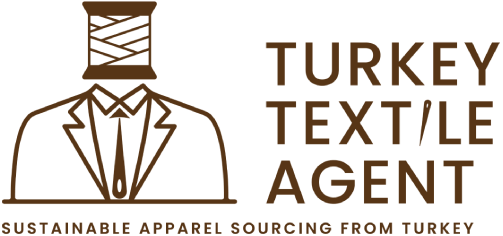Manufacturing in Turkey presents a unique opportunity for businesses looking to lower costs, improve production efficiency, and take advantage of favorable trade policies. With its strategic location, skilled workforce, and competitive advantages, Turkey has become one of the top choices for businesses seeking to optimize their manufacturing processes. This article explores how manufacturing in Turkey can result in significant cost savings, including lower import tariffs, and highlights the various benefits that make Turkey a prime destination for production.
Strategic Location for Global Trade
Turkey’s geographical position is one of the key advantages for businesses considering manufacturing in the country. Situated at the crossroads of Europe, Asia, and the Middle East, Turkey offers unparalleled access to both developed and emerging markets. This location makes it an ideal hub for exporting goods to major markets, including the European Union, the Middle East, and North Africa.
Proximity to Key Markets
By choosing manufacturing in Turkey, businesses can reduce transportation costs and lead times for exporting products to key markets across Europe and Asia. This is particularly advantageous for companies that require fast turnaround times and wish to serve both Western and Eastern markets with ease.
Access to Major Shipping Routes
Turkey’s location also grants manufacturers access to major shipping routes, such as the Bosphorus Strait, which connects the Black Sea to the Mediterranean. This enhances Turkey’s role as a shipping hub and provides manufacturers with a streamlined path for distributing goods internationally.
Lower Import Tariffs and Cost Savings
One of the most significant advantages of manufacturing in Turkey is the country’s favorable trade agreements and lower import tariffs. Turkey has numerous free trade agreements (FTAs) with countries around the world, including the European Union and other key global markets. These agreements help reduce the cost of importing raw materials and components, ultimately lowering production costs for manufacturers.
The Role of Customs Union with the European Union
Turkey’s Customs Union agreement with the European Union allows for the free movement of goods between the two regions without imposing tariffs. This arrangement benefits businesses that manufacture goods in Turkey and export them to the EU, as they avoid additional costs typically associated with cross-border trade. With manufacturing in Turkey, companies can enjoy access to the European market while taking advantage of Turkey’s competitive pricing.
Incentives for Foreign Investors
The Turkish government has implemented several investment incentives to attract foreign manufacturers, including tax reductions, exemptions from import duties, and other cost-saving measures. These incentives can significantly reduce the operational costs of establishing a manufacturing facility in Turkey and help businesses become more competitive on a global scale.
Skilled Workforce and Competitive Labor Costs
Turkey has a large and skilled labor force, particularly in industries such as textiles, automotive, electronics, and machinery. The country has a well-established educational system and technical training programs that ensure a steady supply of skilled workers for the manufacturing sector.

Cost-Effective Labor Force
Compared to Western Europe and North America, labor costs in Turkey are significantly lower. This cost advantage allows manufacturers to maintain high production standards while keeping overhead costs down. The ability to hire skilled workers at a lower cost is a major benefit for companies looking to scale production efficiently.
High-Quality Production Standards
Despite the lower labor costs, Turkey is known for maintaining high production standards. Many Turkish manufacturers are ISO-certified and comply with international quality standards, making the country an attractive choice for businesses looking for quality manufacturing at competitive prices.
Access to Raw Materials and Supply Chain Efficiency
Turkey is rich in natural resources and has a well-established industrial base. The country is a significant producer of various raw materials, such as textiles, metals, and chemicals, which are essential for manufacturing processes.
Proximity to Raw Materials
Manufacturers in Turkey have easy access to these raw materials, which not only reduces the cost of procurement but also shortens supply chain lead times. The reduced reliance on imports for key materials enhances the efficiency of manufacturing operations and further lowers costs for businesses.
Strong Local Supply Chain Network
Turkey has a robust local supply chain network, making it easier for manufacturers to source components and raw materials quickly. This reduces the risk of supply chain disruptions and allows businesses to operate with greater flexibility and efficiency.
Government Support and Investment Incentives
The Turkish government is actively working to enhance the country’s position as a global manufacturing hub. In addition to the Customs Union and free trade agreements, the government has implemented numerous initiatives aimed at reducing business costs and encouraging foreign investment.
Tax Breaks and Investment Zones
Turkey offers special investment zones where manufacturers can benefit from tax breaks, subsidized utilities, and reduced administrative costs. These zones are designed to attract foreign companies and stimulate economic growth by providing an advantageous business environment.
R&D and Technological Innovation
The Turkish government also supports research and development (R&D) activities within the manufacturing sector. Companies that invest in technological advancements and innovation may be eligible for additional grants and funding to help reduce the costs of implementing new technologies and improving production efficiency.
Sustainability and Environmental Considerations
Manufacturing in Turkey offers an opportunity for businesses to adopt sustainable production practices while benefiting from cost savings. The Turkish government has introduced various initiatives aimed at promoting environmentally friendly manufacturing processes.

Energy-Efficient Manufacturing Practices
Turkey’s commitment to sustainability includes supporting energy-efficient technologies and renewable energy sources. By implementing these practices, manufacturers can reduce energy consumption, lower operational costs, and contribute to reducing their environmental footprint.
Environmental Regulations
Turkey has increasingly stringent environmental regulations in place, ensuring that manufacturers adhere to eco-friendly practices. Companies that choose to manufacture in Turkey can improve their environmental performance while remaining compliant with international standards and certifications.
Business-Friendly Environment and Ease of Doing Business
Turkey ranks highly for its ease of doing business, thanks to its streamlined processes for starting and operating a company. The country has made significant strides in simplifying business registration, obtaining permits, and ensuring a stable business environment.
Efficient Regulatory Framework
The regulatory framework in Turkey has been continuously improving, making it easier for foreign companies to navigate the legal and bureaucratic processes involved in setting up a manufacturing operation. This efficiency reduces the time and costs involved in establishing a presence in the country.
Cultural and Business Acumen
Turkey’s growing focus on international business relationships has resulted in a strong cultural understanding of global business practices. Local partnerships and collaborative opportunities are common, making it easier for businesses to integrate into the Turkish market.
Conclusion: The Competitive Advantage of Manufacturing in Turkey
Manufacturing in Turkey offers a range of benefits for businesses looking to lower import tariffs, cut production costs, and gain access to key global markets. The country’s strategic location, skilled workforce, favorable trade agreements, and government incentives make it an attractive destination for companies in a variety of industries.
By choosing Turkey for manufacturing, businesses can take advantage of cost savings, reduce supply chain lead times, and tap into a robust local supply chain network. Furthermore, the growing focus on sustainability, technological innovation, and ease of doing business adds additional layers of appeal for foreign investors.
Whether you are looking to scale production, expand into new markets, or improve your bottom line, manufacturing in Turkey offers a competitive edge that can help drive success in today’s global marketplace.

